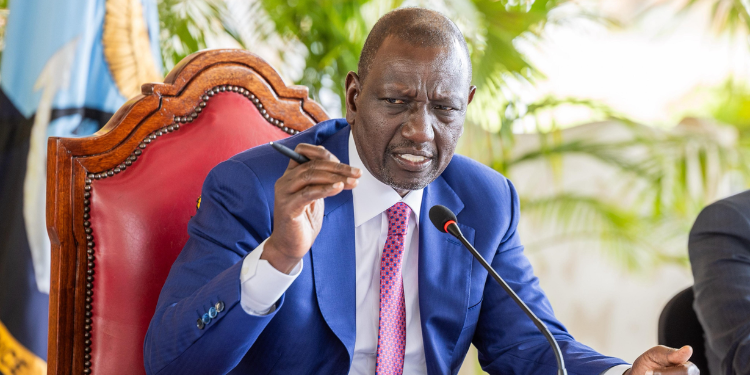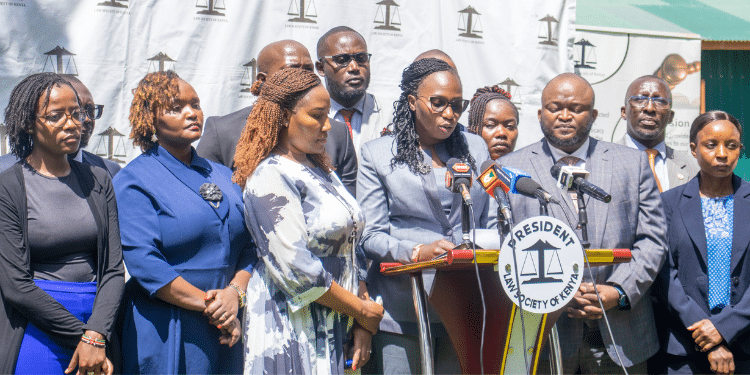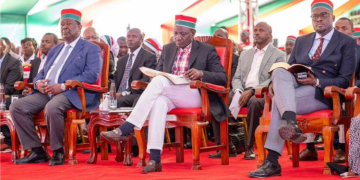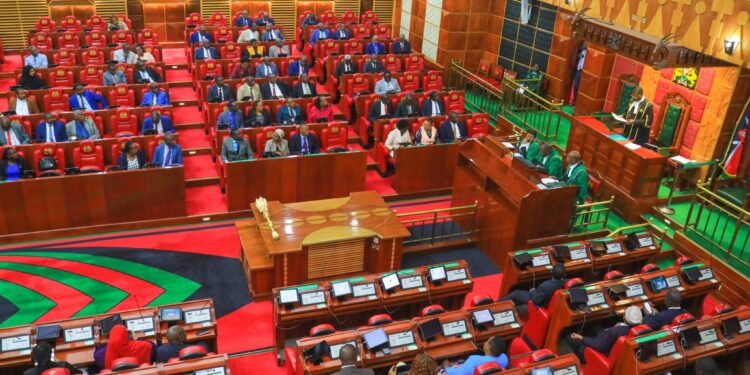The Supreme Court of Kenya has declared three laws passed by the national Assembly as Null and void.
This comes after the Senate argued that, during the 12th Parliament, the National Assembly curtailed its legislative role in two significant ways.
First, the National Assembly passed several bills, which were subsequently enacted into law, without the participation of the Senate, contrary to the Constitution.
Second, the National Assembly declined to consider several bills originating from the Senate, claiming they were money bills that ought to originate in the National Assembly.
Supreme Court Upholds Court of Appeal Ruling
The Senate would later file a petition in the High Court contending 23 statutes which had been passed by the National Assembly without its participation were unconstitutional.
Senate was apprehensive that the Parliamentary Service Bill No. 6 of 2018, which was then pending and originated by the National Assembly, would be passed into law without consideration by the Senate.
The Council of Governors (COG) also filed another petition in the High Court challenging the Health Laws Amendment Act of 2019 which amended Sections 4 of the Kenya Medical Supplies Authority (KEMSA) Act No. 20 of 2013.
The amendments prescribed that County Governments procure drugs and medical supplies only from KEMSA as well as a penalty for non-compliance. The two petitions were consolidated and heard together.
Also Read: Court Seals Fate of Kawira Mwangaza
The Supreme court ruled that the three bills passed by the August House were contrary to six articles of the 2020 Constitution.
“The declaration by the Court of Appeal that the underlisted Acts passed by the National Assembly are in contravention of Articles 96, 109, 110, 111, 112 and 113 of the Constitution and are therefore unconstitutional, thus null and void,” read the court ruling in parts.
Among the acts declared unconstitutional are the Equalization Fund Appropriation Act, No. 3 of 2018, the Sacco Societies (Amendment) Act, 2018 No. 16 of 2018; and the amendments made to section 3 and 4 of the Kenya Medical Supplies Authority Act by the Health Laws (Amendment)Act, No. of
5 of 2019.
Why the Acts Were Declared Null and Void
At the same time, the court suspended the declaration of invalidity of the Sacco Societies (Amendment) Act, 2018 for a period of 18 months from the date of this judgment.
“The Sacco Societies (Amendment) Act, 2018, No. 16 of 2018; and the amendments made to Sections 3 and 4 of the KEMSA Act by the Health Laws (Amendment)Act, No. of 5 of 2019 affected the functions and powers of counties hence ought to have been considered by the Senate hence are unconstitutional,” read part of the ruling.
“The Senate ought to have been involved in the consideration and enactment of the Equalization Fund Appropriation Act, No. 3 of 2018. Therefore, the action of excluding the Senate from the enactment of the Equalization Fund Appropriation Act, No. 3 of 2018 was unconstitutional.”
The Supreme Court noted that the Court of Appeal erred in making a determination on the constitutionality of the Parliamentary Service Act, 2019 despite the fact that it was not an issue for consideration before the High Court.
“In other words, the question of the constitutionality of the Parliamentary Service Act, 2019 was not properly before the Court of Appeal,” the court ruled.
However, the Supreme court found that found the 21 statutes were constitutional.
Also Read: IEBC Selection Panel Dragged to Court Days After Shortlisting Candidates
Acts Passed by National Assembly and Declared Constitutional
The acts declared constitutional were: Public Trustee (Amendment) Act, No. 6 of 2018; Building Surveyors Act, No. 19 of 2018; Computer Misuse and Cybercrime Act, No. 5 of 2018; Statute Law (Miscellaneous Amendment) Act, No. 4 of 2018; and Kenya Coast Guard Service Act, No. 11 of 2018.
Additional acts were Tax Laws (Amendments) Act, No. 9 of 2018; Statute Law (Miscellaneous Amendments) Act, No. 18 of 2018; Supplementary Appropriation Act, No. 2 of 2018; Finance Act, No. 10 of 2018; and Appropriations Act, No. 7 of 2018.
Others are Capital Markets (Amendments) Act, No. 15 of 2018; National Youth Service Act, No. 17 of 2018; Supplementary Appropriations Act, No. 13 of 2018; Health Laws (Amendment) Act, No. 5 of 2019, save for amendments made to sections 3 and 4 of KEMSA Act.
Also listed are National Government Constituency Development Fund Act, 2015; National Cohesion and Integration (Amendment) Act, 2019; Statute Law (Miscellaneous Amendment) Act, 2019; Supplementary Appropriation Act, No. 9 of 2019; Appropriations Act, 2019; Insurance (Amendment) Act, 2019; and Sports (Amendment) Act, No. 7 of 2019.
The High Court had earlier found that the 23 statutes were unconstitutional.
It issued a declaration that any Bill or delegated legislation touching on the mandate or powers of the Parliamentary Service Commission must be considered by the Senate, as it directly affects the Senate’s ability to fulfill its constitutional mandate, including considering Bills that affect counties.
However, aggrieved with the High Court’s decision, the National Assembly filed an appeal in the Court of Appeal that only upheld three out of the 23 Statutes which were declared unconstitutional by the High Court.
The appellants’ court also found that the High Court erred by failing to pronounce itself on all the prayers sought in the cross petition by the National Assembly and as a result, it remitted the cross petition back to the High Court for consideration.
Follow our WhatsApp Channel and join our WhatsApp Group for real-time news updates.











































































